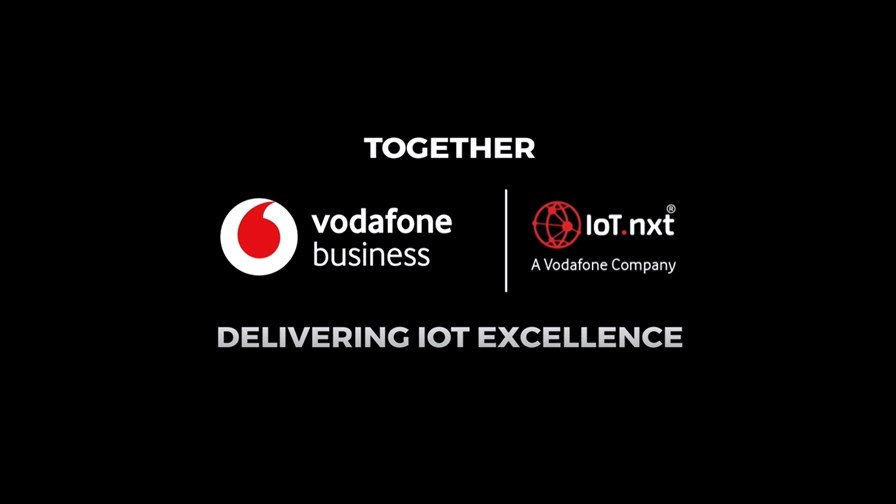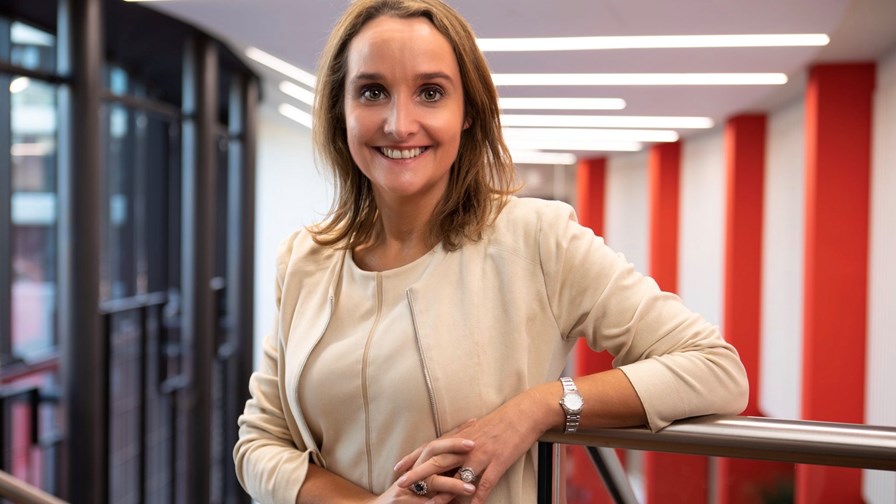
- Vodafone UK is targeting UK business users with new IoT offer
- Vodafone-owned IoT.nxt plays key role in enabling services
- Focus is on customized service offerings, says Vodafone UK Business Director Anne Sheehan
- Addressable market worth billions of pounds, claims Sheehan
Vodafone UK has tapped the expertise of a fellow Vodafone Group outfit to develop an IoT service package for business users of all sizes that, it believes, is unique and can meet the specific needs of enterprises.
To develop the new pitch, the UK operator’s business division has teamed up with IoT.nxt, a South African company that is 51% owned by Vodacom, which is also part of the international Vodafone Group.
IoT.nxt has developed a “technology-agnostic framework” for IoT deployments that can auto-detect IoT devices, enable dynamic configuration, enable the input of user-specific business processes, automate processes, gather and secure data, provide a single view of the network and enable troubleshooting. At the heart of its system is an IoT system called Raptor comprising hardware and software elements that filters data, regulates traffic, and identifies and integrates devices using a “translation tool that addresses all industry standard protocols.” So, it can do everything but make a decent cup of coffee, it seems…
Importantly, the IoT.nxt system doesn’t mean that companies need to replace or discard existing systems. “We enable the deployment of best of breed technologies and retain currently deployed systems and devices creating a holistic business ecosystem that you can monitor and manage remotely from a single screen. The IoT.nxt platform allows rapid deployment and businesses to action a digitalisation strategy with little to no disruption to current operations.”
Quite the claim! But one that has already been tried and tested in the UK, by Vodafone itself at its offices in Paddington, London, and by enterprise users, including SES Water.
Utility firm SES Water is the kind of company one would expect to have embraced an IoT strategy to help its business – it is large, will have an in-house IT team, and relies on assets that are physically distributed, with a lot of moving parts that need to be tracked, managed and monitored: In short, it’s a slam dunk for an IoT deployment.
What Vodafone UK is saying now, though, is that the service offering it has developed with IoT.nxt – combining the technology and expertise of the IoT specialist with the mobile operator’s connectivity, professional and managed services – is suitable for all types and sizes of companies that need to track, monitor and manage assets.
And, critically, the all-in-one package of technology, connectivity and support services isn’t rigid – the overall proposition is customized for each enterprise customer and then be delivered as a managed service.
“The IoT.nxt platform allows us to customise solutions but bring them to market in a very affordable manner, no matter what the industry vertical might be… and it doesn't matter whether you’re really small or really large organisation,” says Anne Sheehan, Business Director, Vodafone UK (pictured below). “Whether you've 50 staff or 10,000 people working for you, the ability to run your organisation using data, to gain greater control and better insights, is now critical, and IoT lends itself to that.”

Anne Sheehan, Vodafone UK
She says to date, IoT deployments have largely been the preserve of larger organizations, because of the complexity associated with deploying and running an IoT installation, and that the majority of the early success for Vodafone has been in the automotive sector. “The opportunity for Vodafone is to do what we've done in automotive and help companies in other industries and make it affordable…. and solve [enterprises’] problems.”
And in the UK, that means getting to grips with the specific needs of smaller-sized companies. “The UK market is primarily SMEs… just bringing solutions that are very focused at the high end isn't the right thing for Vodafone… We need to listen to our customers, need to understand their challenges, or what opportunities they have to grow over the next two to three years, listen to them, and then build the solutions in conjunction with them. IoT.nxt is nearly like a factory [that can] build it for you in an affordable manner.”
That’s easy to say, but very hard to do: Operators have been talking about understanding the needs of their business customers for decades but still don’t seem to be any closer to delivering on that aspiration. Sheehan says Vodafone believes it can build on the knowledge and insight it is gaining from working with business customers on how 5G can help them develop their businesses. So the jury’s still out on that one, then…
What Sheehan is clear about, though, is that each company will get a solution that is not just a cookie-cutter package, but one that suits their specific needs. “We’re not bringing standardized solutions to market -- the problems that customers are trying to solve is often what gives them the competitive edge over their competitors, so they might be trying to track or trace something in a particular way, or get analytics from sensors in a particular way that gives them an edge, so bringing a one-size-fits-all to market doesn’t work from an IoT perspective.”
So what is Vodafone expecting from this push? What is the addressable market in the UK for such IoT services?
“The opportunity is in the billions, because the SMEs will grow CAGR of 12% over the next five years. I think the estimated opportunity in spend in total in the UK market is probably just shy of about £3 billion for IoT. The success of IoT.nxt will predict what share Vodafone can get all of that, but the opportunity in the market is huge – data is at the centre of everything, how you track and trace data, how you use it to run your business, that is a massive opportunity.”
So should UK companies just put their trust in Vodafone? Or can they try before they buy? Vodafone says it can run Customer Experience Centre sessions with potential customers to "deep dive challenges and demonstrate how we can deliver an IoT solution to address specific needs. We would then run a small PoC [proof of concept] with agreed success criteria to allow the customer to experience a real world solution as a trial period."
As for the major business opportunity, like all other growing sectors lots of companies want a piece of it. So who does Sheehan see as Vodafone’s main rivals in the UK enterprise IoT market?
She notes there are a lot of rivals, both from the telco sector and non-telco, but believes that most of those are offering ‘point solutions… that they believe answer customer questions…. What we have is slightly different, customizing the service for the verticals and for the customers. This is a managed services that offers hardware, software and services – you don’t have to different places to get the sensors, the professional services, the software. We wrap all of this together and I believe that is unique in the UK market [currently],” says the Vodafone exec.
Now comes the hard part for Sheehan and her team: To persuade UK enterprises that Vodafone not only has the most suitable all-in-one IoT solution that can truly help their business in some way, but also that it really is as affordable as Vodafone claims.
- Ray Le Maistre, Editorial Director, TelecomTV
Email Newsletters
Sign up to receive TelecomTV's top news and videos, plus exclusive subscriber-only content direct to your inbox.




